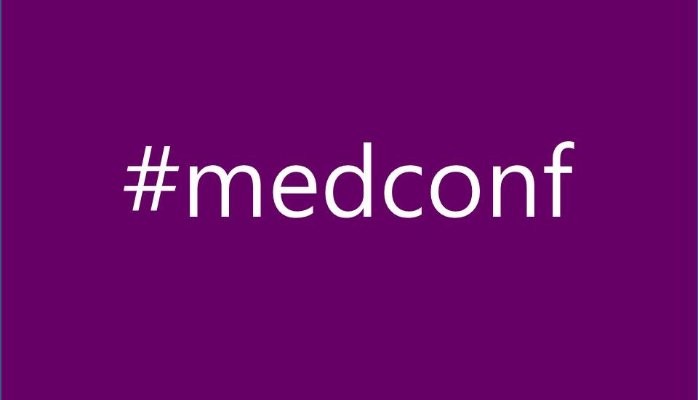
Should pharma's use of medical conference hashtags be curbed?
A group of scientists and HCPs have published a paper indicating that, through their use of hashtags during medical society conferences, biopharmas and medical device companies exert a disproportionate influence on healthcare providers to promote their products or services instead of sharing unbiased, evidence-based information.
The full analysis with comments (including mine) can be viewed here:
I must admit this aspect of pharma’s Twitter contributions to hashtags is one that I had not fully considered, possibly because I have been far more concerned with encouraging the industry to use social media and engage with HCPs openly. We should not forget that it was only a few years ago that the very first pharmas plucked up sufficient courage and developed appropriate internal guidelines to enable them to contribute to conference hashtags; Boehringer Ingelheim springs instantly to mind.
Yet, most importantly, the analysis raises some critical issues concerning the industry’s apparent power to influence: should its behaviour be curbed or regulated in some way?
The authors of the study propose six activities that medical conference organizers should consider in order to draft appropriate future guidelines:
- Conference organizers should publicly state in their Twitter backchannel that third party entities should declare themselves as such in their respective Twitter profiles.
- Conference organizers should insist that third parties compose tweets that disseminate scientific facts and not solicitations for products/services.
- If third parties wish to solicit for a product/service, they should include an additional hashtag in the body of their tweet (eg, #ad) to allow participants within the backchannel to filter out such tweets.
- Conference organizers should encourage third parties to restrict their Twitter activity to coincide with their live ‘hours of operation.’
- Conference organizers should task independent individuals/groups to annually measure the PageRanks for each Twitter account mentioned (@mentions) within their conference-specific hashtag.
- Conference organizers should target third party accounts with abnormally high PageRanks for further education about best-practices within their respective Twitter backchannel.
Inspiring medical conference organizers to implement all six recommendations may prove to be unnecessary, impossible, or counter-productive, although the first one – using transparent Twitter bios – is one that I would unequivocally support. The problem lies in the attempt to ‘control’ a social media platform that, on the contrary, demands medical conference organizers relinquish control and embrace open dialogue with all stakeholders.
Is this an issue that the pharma industry needs to regulate itself?
What do you think?
When we still have organizations like AACR who publish social media policies like, "Please Tweet, but don't reference any data you see" (paraphrasing, but accurate) I believe we should bias towards participation. Bad behavior on social media will do brands harm. There is, therefore, great incentive for companies to not be obtrusive. Yes, some brands have people with no idea how to do social media managing their accounts. I find a quiet DM or email usually does the trick. If not, then a reply in public almost always does. In any case, I find what brands are saying on social media -- especially at scientific conferences -- enlightening and informative to what's going on in the broader world.
Director at Strategic Vision
8yReally well said Marie VanAssendelft-Baker
Interesting point. That being said, this would impact every industry... not just pharma. Outside of hashtags, there are also sponsored emails, Facebook, on-site marketing, etc. At most conferences, sponsors and companies leverage conference hashtags (and other marketing mechanisms) to promote products, appearances, events, etc. Look at CES for example, tech companies, vendors, even brands not at the event, are all grappling for attention from attendees. Why? Because those are the people they want to reach. Understandably, not all of these industries are highly regulated, but the underlying theme is similar. As long as a company or brand is transparent in the way they are interacting and are abiding by the regulations in place, then why not leverage the opportunity to engage with those that would care most about what you have to say. I think (I hope!) people are smart enough to ignore SPAM, the "hard sell" or things that do not interest them, and focus on what they want to focus on. It's up to the brand or company to create engaging content, messaging and leverage appropriate targeting and not waste resources on ineffective promotions.
Assisting leaders and entrepreneurs execute their vision in Life Sciences and Health IT
8yBrilliant insight as always Len Starnes! Like the fact that you raise the question and provided recommended solutions. I believe the influence industry has been able to "exert" over any part of medical care with medications has diminished by its own failures more than its own progress. Great products produce great clinical results. The issue is whether the industry can continue to produce great products given the high cost of development. Just read an article on disruptive innovations and as you are a student of that thought process as well, appreciate that the industry needs to trim itself some more before they can embrace that model changing behavior. Just a shame that so many jobs are lost in the process. Keep up the great work!
I agree with Lawrence Sherman, FACEHP, CHCP... I believe we are over-thinking this issue --- although in the spirit of full disclosure, Twitter profiles should be accurate and transparent .